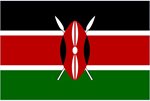Hannah Connolly
 Hannah is a fourth-year MD/MPH student at SUNY Upstate Medical University in Syracuse, NY. She attended Hobart and William Smith Colleges in Geneva, NY, where she received a Bachelor of Science in Biology and a Bachelor of Arts in Health Disparities. Her global health experience began over the summer between her first and second years of medical school in Kisumu, Kenya, where she worked on a social autopsy project that sought to elucidate social determinants of perinatal mortality. She will now return to Kisumu to spend the next year partnering with community health workers to increase access to mental healthcare, while working on her MPH. She is interested in the concept of task shifting to increase access to mental health services in Kenya and social determinants of health more broadly. Upon return, she will apply to Psychiatry Residency programs, with the goal to specialize in Child and Adolescent Psychiatry. She hopes to spend her career partnering with under-resourced communities at home and abroad to develop community-based interventions to address health disparities. In her free time, she enjoys yoga, stand up paddleboarding and spending time on the St. Lawrence River.
Hannah is a fourth-year MD/MPH student at SUNY Upstate Medical University in Syracuse, NY. She attended Hobart and William Smith Colleges in Geneva, NY, where she received a Bachelor of Science in Biology and a Bachelor of Arts in Health Disparities. Her global health experience began over the summer between her first and second years of medical school in Kisumu, Kenya, where she worked on a social autopsy project that sought to elucidate social determinants of perinatal mortality. She will now return to Kisumu to spend the next year partnering with community health workers to increase access to mental healthcare, while working on her MPH. She is interested in the concept of task shifting to increase access to mental health services in Kenya and social determinants of health more broadly. Upon return, she will apply to Psychiatry Residency programs, with the goal to specialize in Child and Adolescent Psychiatry. She hopes to spend her career partnering with under-resourced communities at home and abroad to develop community-based interventions to address health disparities. In her free time, she enjoys yoga, stand up paddleboarding and spending time on the St. Lawrence River.

Empowering Community Health Care Workers to Screen for Mental Health Issues
7/01/2019 - 5/01/2020
Kenya
What does the Kean Fellowship mean to you?
The Ben Kean Fellowship provides critical financial support for my upcoming year in Kenya. The opportunity to invest a year out of my education toward building deep connections with the Kisumu community will translate to projects that can be meaningful and sustainable. By returning to the same community where my work in global health began, I hope to continue to expand my network in order to develop a lifelong connection with this place and its people. I am incredibly grateful for the financial support that this fellowship offers and the opportunity that comes along with it.
What do you anticipate learning?
Over the next year, I hope to gain the skills to develop public health interventions that are grounded in needs that are self-identified by the communities I will work in. In completing my MPH coursework, I will gain the framework for approaching public health research and intervention, but my on-the-ground experience will broaden the scope of my coursework. I hope to engage in conversations with Community Health Workers (CHWs) around what mental health looks like in their communities and what services are offered in their catchment areas. I hope to provide CHWs with educational materials and resources to empower them to identify gaps in mental healthcare and increase access to mental health services.
What interests you about tropical medicine and what problems are you interested in solving?
My experience with tropical medicine is represented by an imbalanced seesaw, one that leans towards social determinants on health outcomes rather than one that favors the efforts of clinical medicine to treat and prevent tropical diseases. This imbalance highlights an intersection of social policy, resource distribution and clinical medicine/research, which perfectly consolidates my interests. The space within tropical medicine where I hope to spend my year is at the interface of the two forces on the seesaw, where there is space to identify the barriers and solutions to the mental health treatment gap. This foundational work will support my career goals: building trusting relationships within global communities, so that the research I conduct is developed by and for the community where I live and study. Tropical medicine enables me to serve as a conduit to piece together stories in a meaningful way, which can enable other clinicians and policy makers to make more informed decisions to increase access to healthcare in resource-poor settings. This work will hopefully reinforce the fulcrum to promote a more equitable balance.